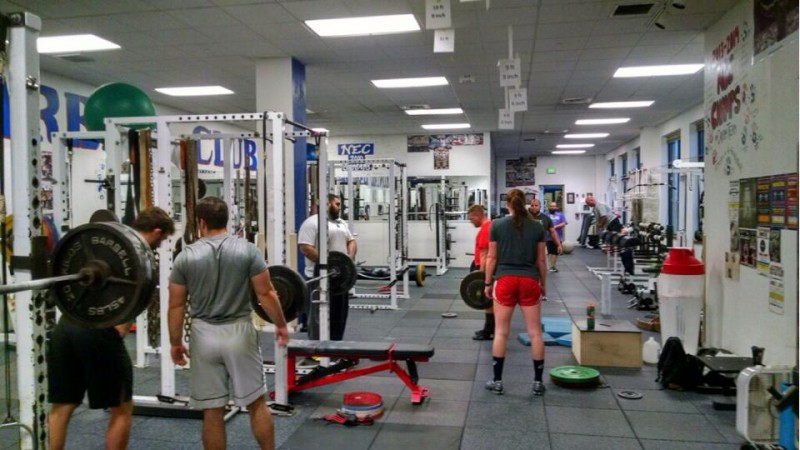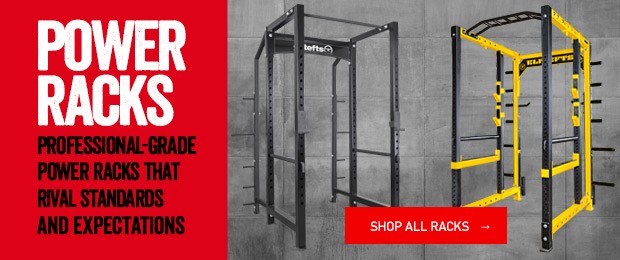
I love the clips of Bugs Bunny looking for Albuquerque. Growing up, this was my favorite cartoon to watch with my dad. Looking back on Bugs now, I realize that he was lost most of the time, and I really hope that I'm not in the same boat.
As with my other articles, I hope you're asking, "What does this have to do with strength and conditioning?" Well, as I see it, our field is changing at a fast pace every day. We need a "Moore's Law" for strength and conditioning. I'll call it Hamer's law. Every two years, more will change in our profession than will stay the same, so be ready for the ride. Knowing that change is coming and won't stop, I think we need to look at where we can be in the future.
As I see it, there are three directions that this profession can go. I know I favor one and I'll explain why later. Joe Kenn recently wrote about how he felt we could go one of two ways. Just to be different, I added a third.
First Direction — Coaching Assistant
To me, this seems to be the direction we're heading as a profession, and it's my least favorite of all the options. With this option, we are hired, fired and paid based on what the head coach thinks of us and the work that we do. The pros to this are that we can make a lot more money and there is a lot of potential to move up in the profession. If your head coach gets a new job, you get a huge raise and can move to BigTime U without even interviewing for the job. The problem with this is that BigTime U and your head coach can fire you any time they want. I don't like this model because it makes us assistants do what the head coach wants.
RECENT: 40 Years and 40 Lessons
If you've dealt with coaches for as long as I have, you know that many don't care or want what is best for the athletes. I'm not in any way judging all coaches, but coaches like the ones I'm referring to are out there. This concerns me because if we go down this road, we'll have a very hard time ever having a disagreement with a head coach without the possibility of losing our jobs. If this does occur, my advice is build an amazing relationship with the head coach so that when you do disagree, you both can talk it out and compromise.
Second Direction — Medical Staff
The second direction that I could see our profession heading is being part of the medical staff. Again, I'm not in favor of this option either. I feel bad for every athletic trainer in the country. I have good friends who do this job and it must be the most frustrating job in the world. You're the lowest on the totem pole of the medical staff and your hours are never ending. I'm not complaining about work hours. I'm just thinking that as an athletic trainer, you have to be at work a few hours before practice. Then you have to sit through practice (often without much work to be done) and work with students after practice. This doesn't even include rehabilitation or open room hours. If we join the medical staff, we'll be one step lower than the athletic trainers and end up spending time doing paper work instead of coaching. I don't see this as a good step for us as a profession.
The bonus of being part of the medical staff is job security. It would be nice to see a strength coach stay at a school even when the head coach leaves. Most of the time, the strength coach doesn't even have that option. A friend of mine told me that he was in the weight room working with volleyball when the athletic director came down to see him. (My friend was at a school where football was the premier sport, and he worked with football and volleyball while overseeing other sports with assistants.) The athletic director wanted to thank my friend for everything he had done and tell him goodbye. My friend replied, "What are you talking about?" The athletic director explained that the football coach had just accepted a job at BigTime U in a power five conference. My friend said, "I think I want to stay." The athletic director replied with, "I like you, but the new football coach will have his own guy, so we can't keep you."
After getting fired and having to move, my friend had to make yet another move for the same reason. When you're young and single, this isn't too bad, but when you have a wife and kids, this sounds...umm...interesting?
So there are some pros and cons of moving in the medical direction, but I really don't want to see this happen and I think it will frustrate many coaches.
Third Direction —Administrative Direction
I would love to see us head in this direction. I'll preface all this by saying that I doubt we're headed in this direction, but I won't stop fighting to get us there.
If we move in the administrative direction, the head strength coach will be an administrator. Assistants will be assigned teams, and the head strength coach/associate athletic director position will meet with the athletic director, coaches and the medical staff to make sure that strength and conditioning is doing what is best and communicating what is being done. With this model in place, when a coach is fired or moves to a new job, consistency within strength and conditioning remains. Yes, it's possible that the coach will take the assistant who works with his or her sport, but the department and its underpinning won't disappear.
Stay in this field long enough and you will know many very good strength coaches who were fired. Why did they get fired? I can honestly say that most of the time, I see strength coaches fired because someone else was fired or someone else left (or a coach tried to save his or her job and passed the blame to the strength coach). I'm not saying that all strength coaches are perfect or that we don't mess up. I've probably done more wrong than right in my life. Even with our imperfections (especially mine) though, most strength coaches are motivated people who are trying to get the best from their athletes. Knowing this, if administrators were to communicate their vision and let us go down in the weight room and fight for the department without always worrying about the next job, don't you think we'd be better off?
As a profession, we've seen some movement in this direction, but for every Ethan Reeves who has lasted at one university for 15 years, we have 10 other coaches moving every year. I see coaches like Ethan, Kaz, Gentry, Buddy Morris, Pat Ivey, Scott Swanson and many others and I think, "Wouldn't our field be better if coaches with their experience stayed at a school and made that program better?"
To me, this is a short list of where I think we could be heading. I haven't touched on the "high performance" model, and I realize that this is a buzz word/phrase right now. I left it out because I believe that as a profession, we need to worry about where we fit within our departments before we try to make this change. I know some out there will disagree with me and that's fine (read my last article if it isn't). All I'm sure of is that none of these will become 100 percent true because Hamer's law says that in two years, it will all be different.












I totally loved this article! Totally agree with your views. I came from a sports medicine background, saw the light that I stunk at that, found my niche in strength and conditioning, then had to move into the medical fitness area to raise the kids. While doing this I had the chance to see scenarios you brought up that I thought I was just fooling myself because I was bitter about not landing a dream job. Would love to hear more about your thoughts on professional development and personal experiences in the field. Jets my email address: Bradgilkeson@gmail.com. thanks again!